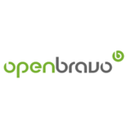Comparison: the best free and open source ERPs
Your business is growing, and you're thinking that now might be a good time to streamline your management tools? You're right: implementing an ERP won't cost you millions of euros, and will enable you to manage accounting, purchasing, customer relations and invoicing in a single environment.
Beware, however, of ERP implementation costs: ERP management software is never entirely free, even if its license is. Project management will inevitably take up a great deal of your teams' time, and the businesses concerned will probably be impacted by new uses. Make sure you don't pay the price for poor project management. The solution to avoid the worst: compare ERPs.
Open source ERP: definition
A flexible ERP solution
An open source ERP, like any ERP , is business management software made up of several business modules sharing a single database.
An open source ERP is software whose code is open, which makes it an intrinsically flexible and scalable tool, offering the possibility of parameterizing complementary modules according to the company's business needs and evolutions.
Like all ERPs, open source ERPs are designed to rationalize business processes, i.e., to optimize data management, the interweaving of different business functions and the avoidance of re-entries, for example. It also enables actions to be traced, for better analysis and decision-making.
Open source ERP features
Rich in functionality, an ERP solution generally covers most areas of business management, including :
- customer relationship management (CRM),
- order management (quotations, invoicing),
- human resources management
- sales management
- inventory management,
- financial management and accounting,
- project management,
- production, etc.
Open source ERP trends
The latest trends in open source ERP include :
- the intensifying move towards cloud (online) ERP, much more suited to modern uses,
- the development of vertical ERP, i.e. management solutions designed for the specific needs of a particular business sector (e.g. specialized for industry),
- improved integration with leading services such as CRM or e-commerce platforms,
- more user-friendly than ever: ERP systems are becoming ever more ergonomic, fast and pleasant to use,
- the growing importance of the technology used and the ecosystem surrounding the tool, which take precedence over functionality itself.
By 2022, over 70% of new applications will be developed in-house from open source databases.
ZDNet
Open source ERP: advantages and disadvantages
The advantages
- Open source ERP is free software: access to its code offers great flexibility;
- You don't need to buy a license to use it, which saves on costs compared with a proprietary ERP and preserves a form of independence;
- Open-source ERPs are often , but not always, free. Modules and extensions are sometimes available at extra cost;
- Most open-source ERPs benefit from a large community of contributors, who bring in batches of improvements and bug fixes at a rapid pace (sometimes more than one update per month);
- Systematic innovation and rapid updates slow down software obsolescence, compared with the sometimes less frequent developments of SaaS-based ERPs;
- User communities are quick to respond to your queries. So you never feel alone when support can't find a solution to your problems;
- For some companies, they are used as a solid, reliable technological foundation on which to develop business applications;
- They are easy to integrate and customize, even if they require resources with very good IT skills;
- Integrated management software is characterized by its interoperability: each business process and its interdependencies are streamlined, resulting in improved performance.
The downside
- The darker side of Open Source ERP lies in the additional services it offers. Users who think they're getting a bargain with a free ERP often find themselves crushed by catastrophic integrations, failed updates, laborious maintenance, when it's not simply a matter of installation that takes weeks. In the case of proprietary online ERP, unlike open source ERP, the publisher takes care of everything for you (hosting + security + updates + support + availability guarantees). Calculate the start-up and running costs of your ERP in detail with an experienced third party before committing to open source.
- The second point is the most problematic: since January 1, 2018, accounting software must be certified to guarantee the inalienability, security, conservation and archiving of data. As open source software is "modifiable", it will never be certified, as no guarantee can be provided.
- In the event of an audit, the company hosting the ERP management software will be held responsible for meeting these legal obligations: potentially you or your IT service provider. Any company unable to provide proof of compliance of the software or systems used will be liable to a fine of €7,500. This fine may be applied if the taxpayer or his representative refuses to allow the administration's agents to carry out an unannounced inspection, and may be renewed if the company persists in its failings. In addition, the representation of a false certificate or attestation is a criminal offence punishable by three years' imprisonment and a €45,000 fine.
- Finally, open source software is clearly not on a par with proprietary software in terms of performance, ergonomics and functional coverage. Odoo used to be an exception, but it has reduced the scope of its open source core and made most of its essential functions chargeable.
In the end, if you really want to be satisfied with an ERP package, it's better to buy a pay-as-you-go solution, or to have a very strong team of engineers to take over all or part of the solution.
Our selection of open source ERP software
Axelor
Axelor is an open-source ERP that's not just beautiful: it's ergonomic and offers numerous collaborative features.

Axelor
Axelor
Founded: 2005
Number of users: unknown
Community: unknown number of contributors
License: AGPL 3.0
Technology: J2EE, AngularJS, JBoss, PostgreSQL, MySQL
It makes you forget about stifling ERP systems, offering clear views that enable you to work on both operational and decision-making tasks. The technologies used by Axelor are at the cutting edge of the market and are particularly well exploited in this highly interactive tool.
Compiere
Compiere is a robust ERP system for the most demanding requirements. Its ERP and CRM work perfectly together, and business subsets can be customized as required.

Compiere
Compiere
Founded: 1988
Number of users: 9,000 customers
Community: number of contributors unknown
License: Mozilla MPL
Technology: J2EE, Oracle
Compiere is renowned for its data model, based on a highly efficient Data Dictionary accessible via the editor and Web Services. This Open Source ERP is aimed at large SMEs looking to reduce their operating costs.
Dolibarr 6
Dolibarr is an Open Source ERP and CRM legend. It's also the only one in its category to be designed for small structures: freelancers, VSEs, startups and small SMEs.

Dolibarr ERP CRM
Dolibarr
Founded: 2002
Number of users: several million
Community: 5,400 contributors
License: AGPL 3.0
Technology: PHP framework, mySQL database
Dolibarr is built on proven technologies by a dynamic community of developers. Its modules make no functional compromises. Dolibarr's advantages include total free access and ergonomic improvements in the latest version.
Odoo 8
Odoo is a refreshing ERP. Designed around Apps that you assemble at your convenience, Odoo is ergonomic, fast and geared towards modern sales channels.

Odoo
Odoo
Founded: 2005
Number of users: 2 million
Community: 1,500 contributors and 300 employees
License: AGPL 3.0
Technology: Python, PostgreSQL
In its latest batch of new features, Odoo can be used, for example, to create an e-commerce site and manage a point of sale. It can also be used to manage talent recruitment activities. Odoo is an ERP for small and medium-sized businesses looking to innovate and reinvent themselves.
Openbravo
Openbravo is an open-source ERP with the resources to match its ambitions, thanks to a very substantial fund-raising campaign. Openbravo is a retail-oriented classic.

Openbravo
Openbravo
Founded: 2001
Number of users: unknown
Community: 20,000 contributors
License: MLP 1.1
Technology : J2EE / AJAX
It is particularly suitable for SMEs in the goods trading sector, thanks to its fine-tuned management of all sales channels and catalog products. The number of contributors to the Openbravo project is simply enormous, guaranteeing a long life for this Open Source ERP.
Bonus: Archipelia
Archipelia, a 100% web-based, multi-tenant*, multi-business SaaS ERP, can be seen as part of the same open source philosophy. Users are directly involved in the construction of the tool and its functional evolution.
Archipelia
Archipelia is both publisher and exclusive integrator, so it can ensure upward compatibility for all functionalities. Its strengths include its rich functionality, modularity and interconnection with numerous SaaS applications.
*A single, up-to-date version for all users, just like smartphone apps.
Our selection of free ERPs
Wave Accounting is an online accounting platform for small businesses, freelancers and entrepreneurs.
Founded in 2009, it offers essential functionality for accounting, invoicing, expense tracking and financial reporting. Wave stands out for its ease of use and free version, making it a popular choice for those with basic accounting needs. However, for companies with more complex needs, other solutions may be more appropriate.

Wave Accounting
ZipBooks is an online accounting solution designed to meet the needs of small businesses and the self-employed.
Created to simplify financial management, ZipBooks offers features such as invoicing, expense tracking, time management and financial reporting.
ZipBooks' user-friendly interface and intuitive tools make it an attractive option for those looking for an easy-to-use accounting solution.

ZipBooks
Kiwili is an online business management platform designed to simplify the day-to-day management of small businesses, freelancers and entrepreneurs .
This all-in-one solution offers features such as invoicing, expense management, time tracking, project management and accounting!
Kiwili enables users to centralize their business operations, track their finances and collaborate more effectively with their team.
The user-friendly interface and customizable features make it an ideal option for those looking to streamline their management processes without investing in complex systems. Although Kiwili offers a free version, it also offers paid-for plans offering more advanced features for businesses requiring more advanced management and accounting functionality.

Kiwili
List of free Open Source ERPs
Open Source and free ERP are not numerous. They are all worth mentioning to broaden your search if necessary. Here they are
- ADempiere ERP (derived from Campiere)
- Apache OFBiz
- ERP5
- Negocia
- NOALYSS
- OBM
- Onix ERP / CRM
- OpenAguila
- OpenConcerto
- openinfo3w
- SpeeDealing
- Tryton
Conclusion
An Open Source ERP is a good solution, provided you have competent and motivated technical teams to take responsibility for its management. Objectives need to be clearly expressed upstream, to guide the choice towards a generalist or a specialized ERP.
Finally, there are the darker sides of open source ERP, such as operating costs and compliance with legislation, which will make open source solution owners more accountable.
After reading this article, which solution will you choose?
Updated article, originally published in March 2017.
Article translated from French